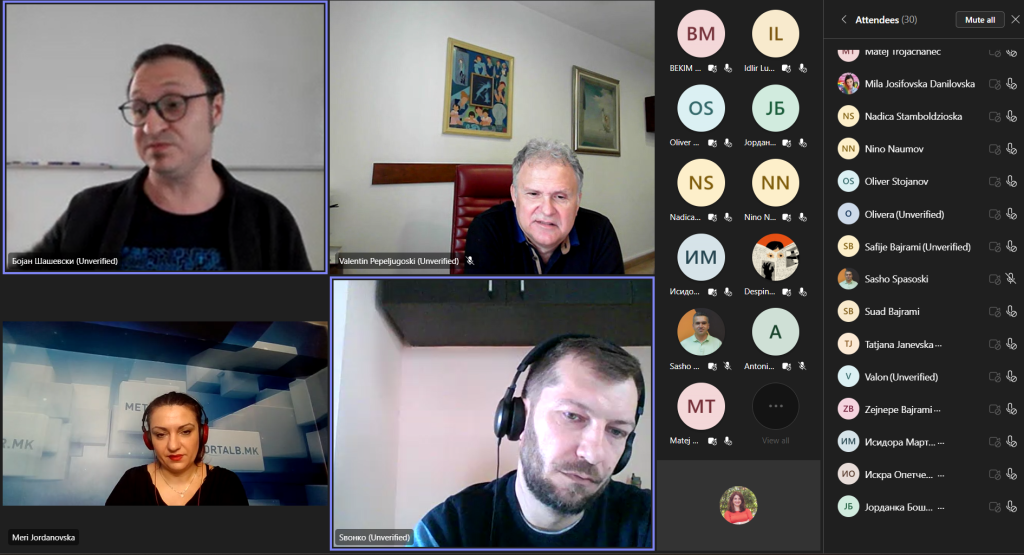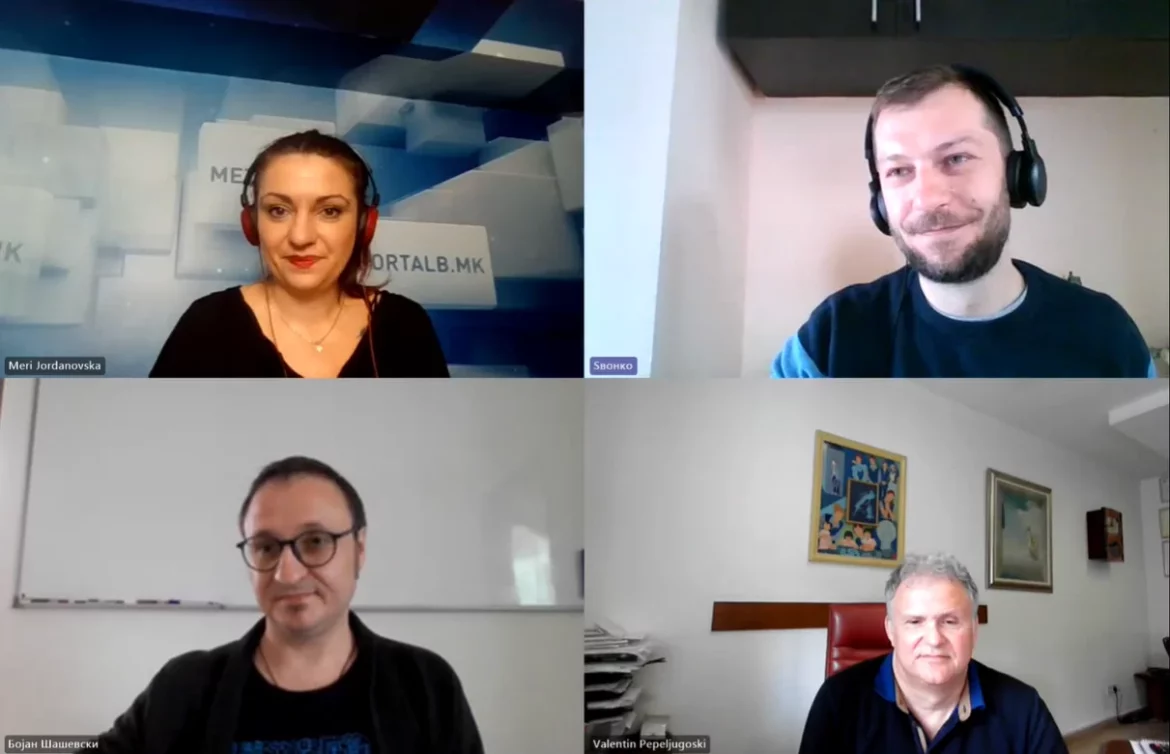The influence of artificial intelligence in the future world of journalism was the topic of discussion in this webinar, in which journalist Bojan Shashevski, photojournalist Zvonko Pllavevski and lawyer Valentin Pepeljugoski participated.
The webinar “Artificial intelligence in the media – pros and cons” and led by journalist Meri Jordanovska, began with a presentation by Shashevski. He said he thinks that AI can be useful in creating some stock photos – for example, if there is an announcement for a workshop to be published, then a photo of tables and participants can be generated by the given prompts.
Also, he emphasized that in his editorial office they used ChatGPT for consultation and inspiration for ideas for workshop activities.
Photojournalist Pllavevski expressed his concern about how false content created by artificial intelligence will affect the already wavering trust in the media. Pllavevski highlighted the example of the prize-winning photo, which was actually created with artificial intelligence.
However, Pllavevski said that he thinks that although AI is useful for generating stock photos, it cannot replace the photojournalist filming an actual event at the scene.
Pllavevski welcomed the fact that certain companies, such as Meta, the owner of Facebook and Instagram, have announced that they will implement a policy of putting a stamp on photos created with artificial intelligence, which would indicate exactly which software a specific snapshot has been created. But Pllavevski questions how effective this measure will be in practice.
“There were pictures of Trump arresting him. The author who created and distributed them himself said that they were created by artificial intelligence, but they were taken for granted when they were distributed on the Internet”, says Pllavevski.
Pllavevski thinks that the pictures created with artificial intelligence will be used for propaganda, to divert attention and deceive people and that it will be waiting to see how they will be used in the next US presidential elections.

Lawyer Valentin Pepeljugoski included the legal aspect as well as the necessary regulations as a reaction to the massive presence of artificial intelligence technology in the media, but also beyond.
He welcomed the fact that in the European Union, the regulations for marking content created with artificial intelligence have already been implemented. However, Pepeljugoski emphasized that, seen from a wider perspective, regulations in the media and in relation to cybercrime are missing.
He commented that even in the media, which often distributes this content, there is not enough regulation. Most media outlets don’t even have an imprint, so a person wouldn’t even know who to sue for defamation.
Attorney Pepeljugoski emphasized that for the third year in a row in North Macedonia, the law on intellectual property, for which it is said to have been prepared, has not been approved. It would enable harmonization with the European Digital Directive, which would allow collecting money for the respective authors when publishing their works online.
“In my opinion, this law has not yet been processed, not because of the lack of speed, but because there are some lobby groups who think that the media should not be burdened with additional expenses,” said Pepeljugoski.
As another problem for the judiciary in relation to intellectual rights, he emphasized the fact that in North Macedonia every local court has jurisdiction over such topics, although not everyone knows enough about this topic. In the EU, for example, there is a court at the European level for these topics, precisely because they are so specific.
In addition, the topic of the webinar included the effectiveness of fact verification, especially in terms of how it is related to the verification of false content created by artificial intelligence. Unfortunately, Pepeljugoski emphasizes that he also notices this problem of not accepting the truth in intellectuals such as university professors.
This event was organized by the Association for the Advancement of Media Practices “Innovative Media”, with the support of the regional project SMART BALKAN – Civil Society for the Connected Western Balkans, implemented by the Center for the Promotion of Civil Society (CPCD), the Center for Research and Creation of Politics (CIKP) and the Institute for Democracy and Mediation (IDM) with financial support from the Ministry of Foreign Affairs of the Kingdom of Norway.





